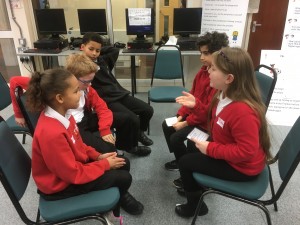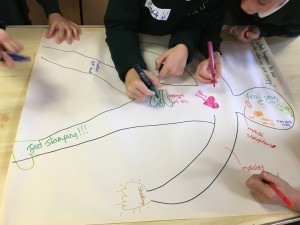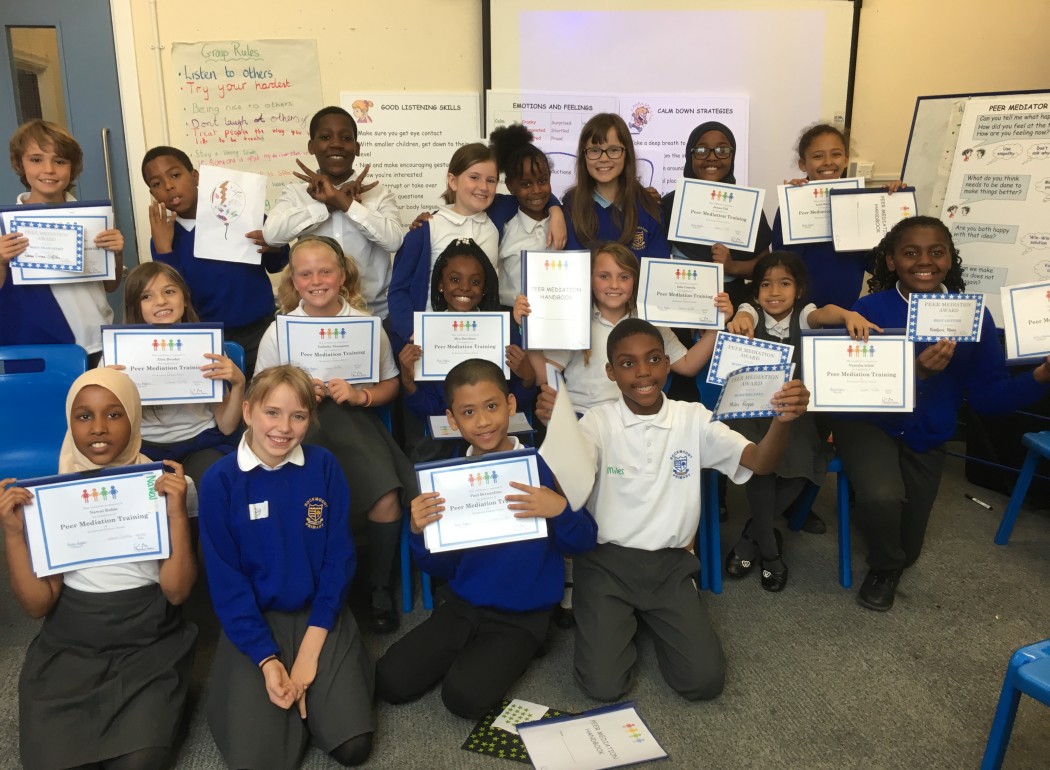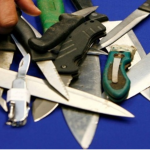What is Peer Mediation?
Peer Mediation has been around for many years and with more schools now using a restorative approach, peer mediators are becoming increasingly popular. Peer Mediation is a voluntary process, whereby trained mediators work in pairs to help resolve the minor conflicts of their peers.
Mediation uses a restorative approach, which means the pupils find out what happened, the thoughts and feelings behind the behaviour and what both parties feel is needed to put things right. For schools that already use a restorative approach, where behaviour management is underpinned by restorative values, this service will result in a fully restorative ethos across the school. For other schools, it is important that it is compatible with the ethos of the school and that staff take on board the Peer Mediation service and are not reticent about having pupils resolve their own low-level conflicts. It is not about removing power and control from staff, it’s about believing in the children and their ability to resolve their own conflicts when empowered to do so – it’s amazing just how capable young children can be.
Pupils can choose to go to Peer Mediators rather than school staff. This frees up staff time, allowing them to focus on other priorities, whilst also enabling children to learn how to resolve their own conflicts. Whilst the impact is not easy to measure, what we do see is a decrease in incidents and happier children. Teaching staff regularly tell us that they are no longer having so many issues coming back into the classroom after lunch-break, and children are coming back ready to learn.
Why is it important?
Conflict is a normal part of life and children often have to resolve their own conflicts. However, sometimes they will need help to do this, and, if given a choice, often prefer their conflicts to be resolved by a peer rather than a staff member. They feel like their peers will understand them better and feel less likely to get into trouble, as the focus is on resolving the issue and moving on, rather than what they have done.
Becoming a Peer Mediator gives pupils opportunities to learn vital communication and life skills, which are important throughout school and into adulthood. Giving pupils this responsibility not only empowers them, but also builds their self-esteem. By going through mediation, the children learn the skills they need to resolve their own conflicts in the future. They take ownership of the problem and learn that they have a responsibility to make things right.
What does the training entail?
Our training in schools is run over four sessions. We teach the pupils listening skills, understanding and managing anger, as well as conflict resolution. We normally train Year 5 and 6 pupils which ensures there is adequate cover when year groups are out of school. The Year 6 pupils will be the experienced ‘Senior  Peer Mediators’ who support and mentor the Year 5’s. We leave each of the children with a handbook and prompt card – useful resources for them to refer to in the future.
Peer Mediators’ who support and mentor the Year 5’s. We leave each of the children with a handbook and prompt card – useful resources for them to refer to in the future.
We work closely with the schools to help them prepare for the implementation and review the process afterwards. Several issues need consideration before implementation, such as how this fits into the school’s behaviour and anti-bullying policies and who coordinates it. Selecting a reliable and enthusiastic Peer Mediator Coordinator is essential for the service to work well. They will oversee the mediators, meeting with them regularly, so any problems or specific incidents can be discussed.
We have had very positive feedback from pupils we have trained, some of whom helped us make a short film which you can find here:
Leave Your Reply
You must be logged in to post a comment.



